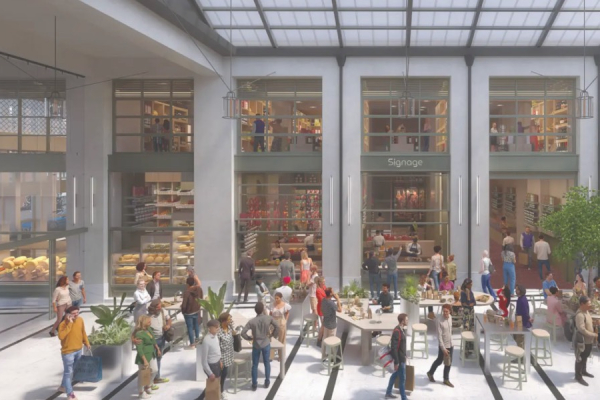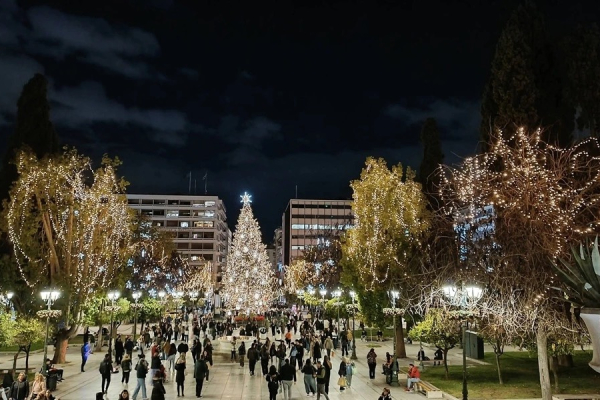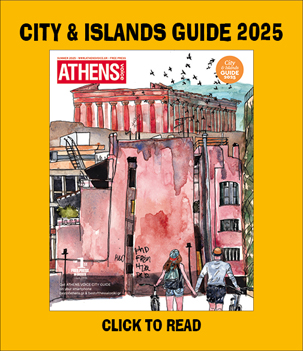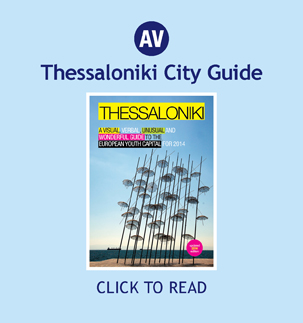by Isabelle Clayton
The working American and the vacationing American are two very different characters indeed. One is fueled by productivity. By crossing off boxes on long to-do lists; by spending long nights in office cubicles and packing meetings into free minutes like pieces in a convoluted scheduling puzzle. But when vacation days arrive, meager in quantity, the working American adamantly strives to leave this all behind. She finally diverts her attention to relaxation, relationships, hobbies; jam- packs her days with some of the rare delights of vacation — touristing about new cities, digging into new books, spending hours in museums or with friends in cozy cafés — knowing that in only a few short days, the possibility of these activities will, once more, be eclipsed by the responsibilities of work. More often than not, the American assumes that the aspects of living which imbue life with color, are, and must be, the rarest. I, too, assumed this outlook. But much can change in a pocket of time; mindsets can change, especially, when you live in Greece.
In late May, I stepped foot onto Greek soil with my American work ethic packed snuggly into my suitcase. Of course, I envisioned working in Athens for the summer as an opportunity to immerse myself in the culture of the city. I yearned to hike up to the Parthenon, explore ancient vases in the Archaeological Museum, ferry to idyllic Cycladic Islands. However, I knew that first and foremost, my chief prerogative was work — it was the reason for which I had come to Athens in the first place. Hence, although I desired to explore, and even, to relax, I expected to only do so on rare occasions. I only knew such activities as the delights and rewards of hard work. And work, at least in the United States, is by definition, all consuming.
But work embodies a new connotation in Greece. You see it when you walk down the street, past shop owners chatting cheerfully with regular customers. It’s noticeable when you arrive at a store and find it closed for lunchtime, or closed for the duration of the day on Sunday. I, along with other Princeton University students interning in Athens, encountered it head-on in the workplace. Our supervisors were amicable, offering rides home from work, signing emails with ‘love’, and even highlighting the work of interns on their Instagram profiles. Work hours were more flexible, and the hours themselves seemed more flexible: tardiness was not punished the way it was in the States. Even dress codes were more relaxed, emphasizing comfort over formality. On the first day of work, one intern arrived at the office to find himself the only employee wearing a tie. Needless to say, dust has since been collecting around that very tie as it sits, untouched, in his closet.
When we left our offices at the end of the day, work seldom followed us back to our apartments. In conjunction with weekends, this meant we had an abundance of time at our disposal — time to sightsee, enjoy long meals, and travel to nearby islands. It was exciting to explore a new city; to experience Athens not only as an employee but as a tourist. But it was also unexpected, and at first, difficult to digest. For in the United States, work and play were mutually exclusive. They held a different weight. But here we were, both working Americans and vacationing Americans. Strangely enough, these two dispositions, while in tension in the American way of life, worked in tandem here in Greece.
Living in Greece forces you to question the presence, and purpose, of time.Throughout the day, you’ll find shaded park benches and corner cafés populated with locals who, with cigarettes in hand, sit for hours to exchange news or stories from their youths. In restaurants, servers often wait for you to ask for a menu, for a check, never rushing customers to order, nor eat, nor leave. The coffee here is bitter, meant to be sipped on rather than slurped. Greeks could allow work to consume their lives; they could rush around, moving from task to task, barely finding the time to eat, let alone take a personal day. But the sidewalks here are slippery, punctuated by potholes. The faster you walk, the more likely you are to fall flat on your face.
You’re better off pacing yourself, taking life step by step. Your eyes, though sporadically checking for menacing hollows in the road, will inevitably have the time to finally look up. The orange trees have always been here, but for the first time, you notice their plentiful troves of fruit. The energy from your daily freddo espresso comes from the drink itself, but also from conversations with your barista, who now teaches you words in Greek and slides you extra spoon sweets to moderate your coffee’s strong flavor. What at first seems like an inconvenience forces you to note how pleasure and satisfaction are not solely gained when you reach your destination. They can be experienced throughout the journey itself. It is a balance rather than a slowness that delineates the tempo of the Greek lifestyle. People are more willing to make time for themselves. Or at least, they are more persistent to enjoy themselves, even while working.
Funny enough, one of the most fascinating discussions of my summer was had in a taxi cab in Mykonos. My cab driver had once been to America; he had worked tirelessly, made a profit. He told me that if he had stayed there, he would have lived luxuriously. But he wouldn’t have had time to enjoy it. His life would have been his work. So he moved back to Mykonos, bought a hotel, became a bartender at one of the island’s most beloved clubs. Through the summer months, when tourists flooded the island, work consumed his days and nights. And in the off-season? He lived off of the money he had made for himself, and did the one thing in life he loved most: travel. It was not a lavish lifestyle, but a rewarding one. “In America I worked,” he mused. “Here in Mykonos, I work. But I also live.”
Finding balance in life doesn’t necessarily mean dedicating one half of the year to work and the other to play. Through my internship at the Athens Voice, balance was struck between work and play through the job itself. To write about the best Athens has to offer its tourists, I had to play the part of the tourist myself. My articles on the city’s green spaces were contextualized by long strolls through the shaded trails of Athenian parks; my articles on its museums were predicated on my meandering through countless exhibits and galleries. I learned how to ride the Athens Metro to teach tourists how to ride it; learned the difference between a Kebab, Gyro, and Souvlaki to open up for tourists the wonders of Athenean street food. In Greece, I wanted nothing more than to explore the city, and my job enabled me to do just that. Like my taxi driver, I shared the sentiment that I was working and living, simultaneously.
For other interns, who spent their days working in labs or in offices, balance still seeped into their lives, through longer lunch breaks, workless nights, and weekends. Pressures we felt due to our jobs were mitigated when we saw the Acropolis, hiked the Hill of the Muses, tanned on the beaches of Santorini, and partied late into the night on the streets of Mykonos. Work was not the all-consuming beast it too often is in the United States. And because we felt a better sense of equilibrium between the time dedicated to our jobs and to our personal lives here, we could return from our lunches, our nights out, and our weekends feeling refreshed; ready to tackle whatever our supervisors presented us with next.
In America, we are often trained to wait. We work long hours, take on more than we can handle, so that later on down the road we can stop; so that finally, we can live. But this mindset is exhausting. Overlooking the significance of a balance between work and personal time is a recipe for burnout. It makes you loathe your job, or even, life itself. Luckily, if I’ve learned anything from my summer in Greece, it’s that waiting to ‘live’ is a choice, not a necessity.
In Athens, you might walk for blocks and pass more buildings than trees, let alone a park. It is a city utterly lacking in green space. And yet, people here find ways to enliven their surroundings. They create pocket parks on their street corners, cultivate herb gardens on their balconies. Flowers pour out of window boxes just as life bursts out of this city’s people, this city’s streets, in masses. It is not innately present, but actively produced. All of this is to say that the joys of living while on vacation will be rare if you allow them to be. Take a page out of the Greek book: walk through life mindfully; rethink your haste. You might find a job that can strike the perfect work-life balance for you. Or maybe, you’ll strike that balance yourself, by taking the time each week to read a favorite book, spend time outside, or enjoy a longer dinner with family or friends. Whatever you do, recognize that time is not simply the distance between your life now and your life in 10 years, 20 years. Time is the embodiment of life itself— a blank canvas, waiting for you, and your experiences, to color it in.











